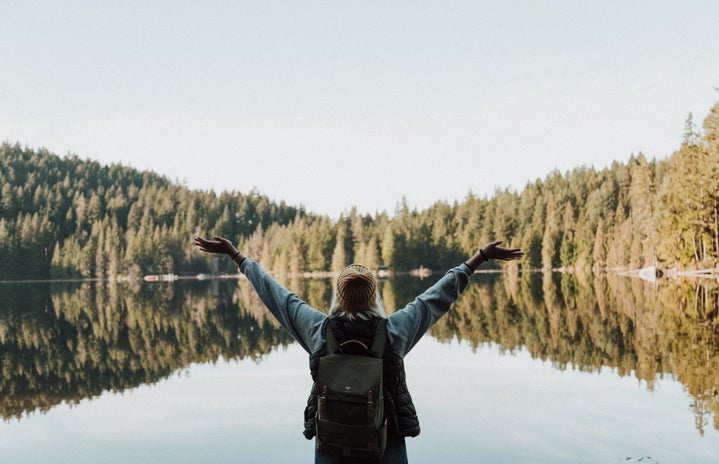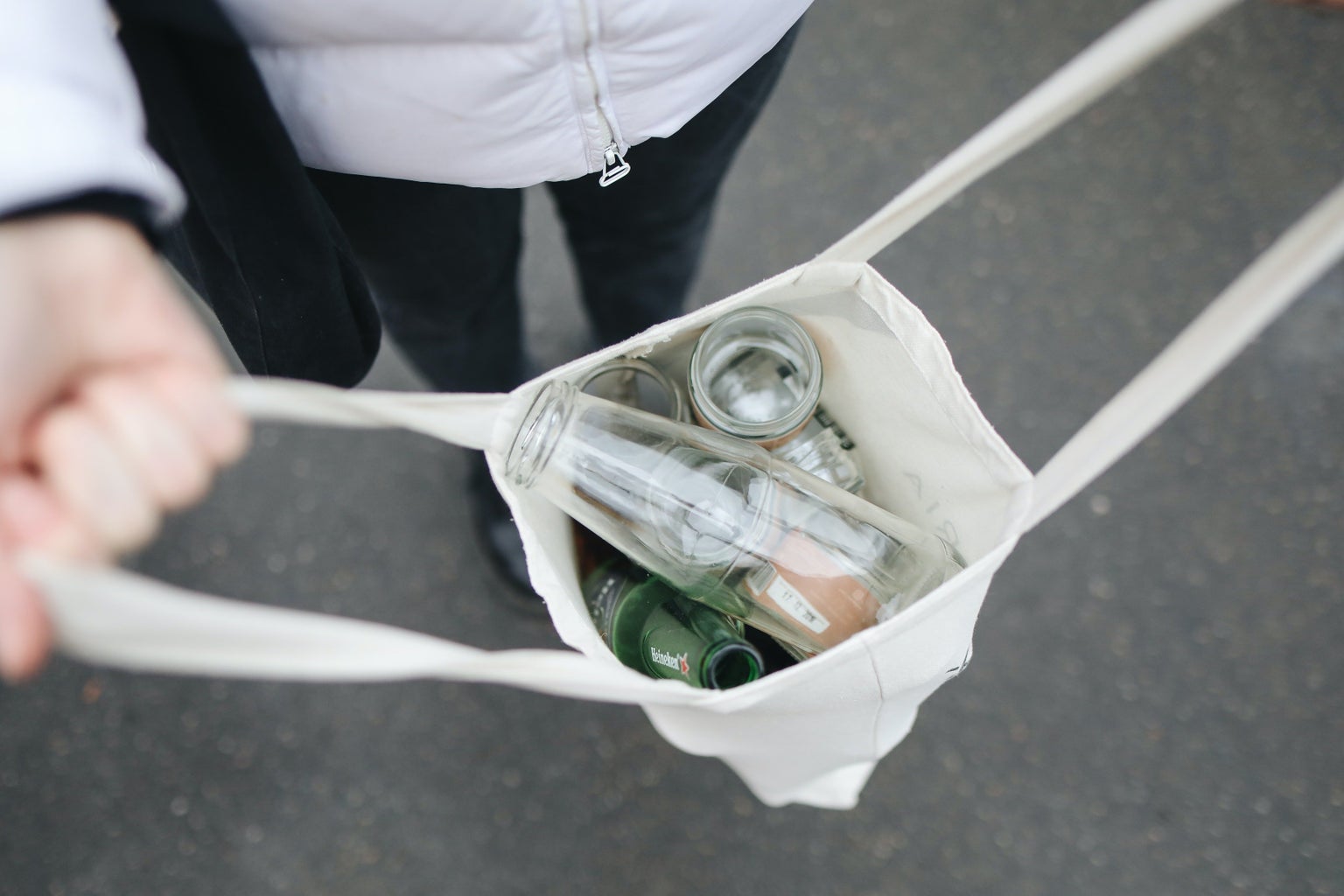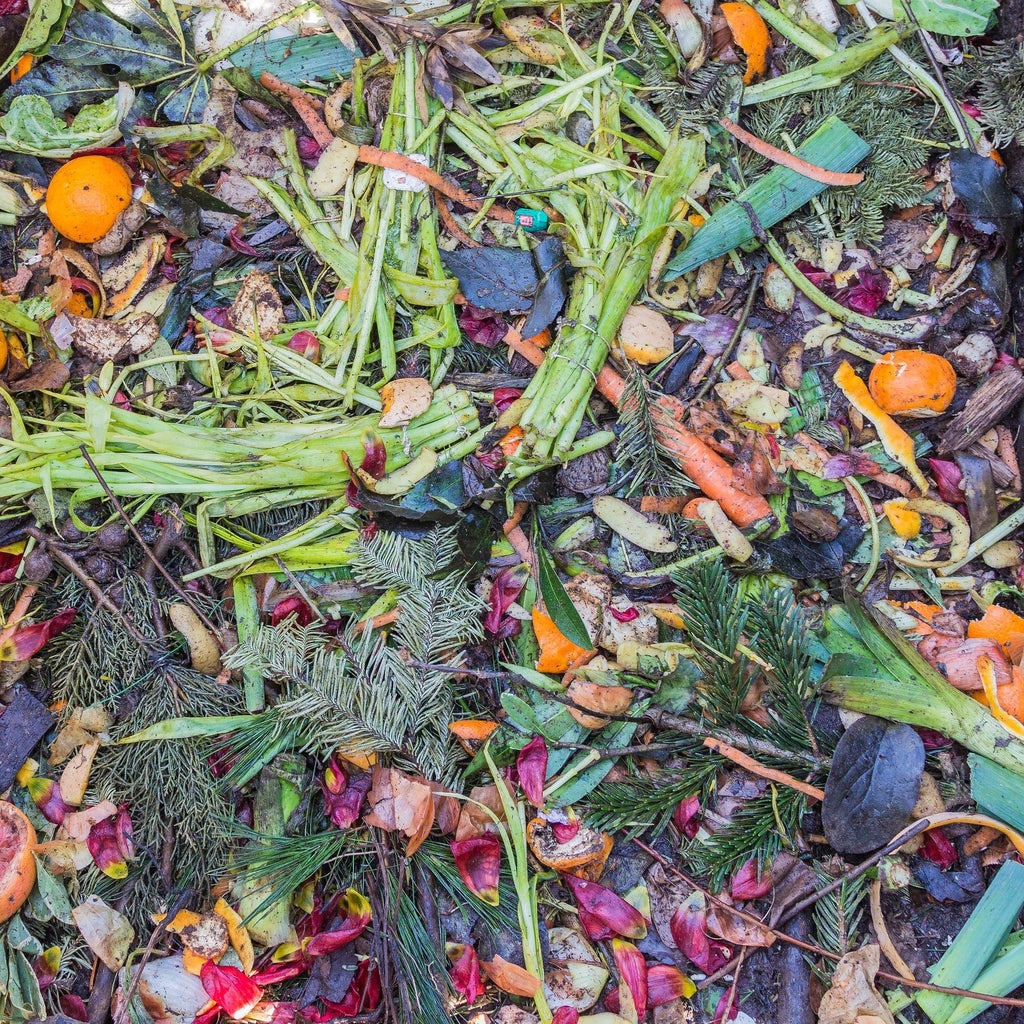The Her Campus National Editors write about products we love and think you’ll love too. Her Campus has affiliate partnerships, so we get a share of the revenue from your purchase. All products are in stock and all prices are accurate as of publication.
Sustainability can be an intimidating thing to think about. It probably won’t feel good to research something you want to know more about if you just end up thinking that you’re not doing anything right. I know I felt this way when I first started thinking about ways that I could be more sustainable in my life, especially as a college student with a job, otherwise known as someone with no money and no time to commit to the fancy composters or to start growing all of my own food. This initial reaction, however, is just that: a reaction.
If we take some time to think about sustainability, the most important thing to remember is that it is a process, and maybe even a lifelong one. While the actions of individuals might not seem like they make a huge difference when compared to the impact that larger companies can have, it is the combination of all of us trying together that will make the biggest difference. The hardest part is starting, but there are so many ways to begin. No matter how big or small the effort, it all matters!
Mindfulness
The first thing we can do to take a step towards sustainability is to start being mindful about it. This is a simple yet eye opening practice that will bring your attention to all the ways that we might be able to improve our habits to better the environment. Your goal should be to notice how we are using our resources, and whether our uses of them are efficient or conducive to what we know is important. Some areas to start thinking about are the energy and water you use in your home. Is there a lamp in your house that you never turn off that you could start turning off when you don’t need it? Do you let the shower run for a while before you think about getting in? Take note of the habits in your life and what consequences they have, keeping in mind that you could already be doing some of these things without thinking about it!
Reuse!
Another huge way we can improve our environmental footprint is by reusing! This is a process of thinking not only about what we buy as consumers, but also what we already have. One example of this that I personally try to practice is to save the plastic resealable bags that so much of our food comes in. Things like nuts, candy bags, or even the Ziploc sandwich bags we may already have in our cabinets. The next time you get a plastic grocery bag, consider keeping it in your car or at the ready for the next time you need a bag, rather than throwing it away and getting a new one. We are thinking about things that are typically seen as single use items, but that are so easy to clean out and reuse later!
Reducing Food Waste
The average American throws away over 400 pounds of food every year, adding up to a whopping 30-40 percent of the US food supply. In addition to this, more than 38 million people were considered food insecure in 2020 in the United States. Many of us are fortunate enough to have grocery stores stocked and ready for us to browse at any moment’s notice, so something to remember as we walk the aisles of a grocery store is the way that we use the food we buy, and the ways we can ensure that the whole product is used. A big way to reduce food waste is by composting. It’s probably not reasonable to say that everyone has the time or the energy to start their own composting endeavors, but that doesn’t mean you can’t participate! Community composting is becoming bigger and bigger, allowing us to contribute to the betterment of our local gardens while also reducing our own waste. Tidewater Compost is local to the Hampton Roads area, and offers pick-up and drop-off options. Some other ways we can reduce our food waste that are pretty simple include planning meals, creating grocery lists and keeping track of what food you really have in your kitchen. When you know what you have, you can be more intentional about what you’re using and in planning what you want to use in the future.
Hopping off the Trend Train
Another area we could bring mindfulness to is in our purchasing habits. In a world of social media, we all know how easy it is to be influenced to buy every new product and every new trendy thing that pops up on our pages. However, not only is this not great for our bank accounts, it is also not good for the environment. Oftentimes, things become trendy quickly, and die off even quicker, leaving hundreds of thousands of products left to rot in a landfill later. This isn’t to say that you should stop buying things altogether, but before buying, consider your usage and the overall impact of the product. Is it something you’ll only use once? Is it a single-use plastic? Do you have something that does something or looks similar? Even if you buy the product, simply keeping these things in mind may help you make different decisions in how you dispose or reuse the item in a new way!
Living a more sustainable life is not a quick button you can press, but over time, with more mindful thinking and more conscious decisions, we can become the advocates that our planet needs right now! Know that there is no right or wrong way to go about it, there is only the effort that you put in, and if we can all put in a little effort, we have the power to make big impacts.




